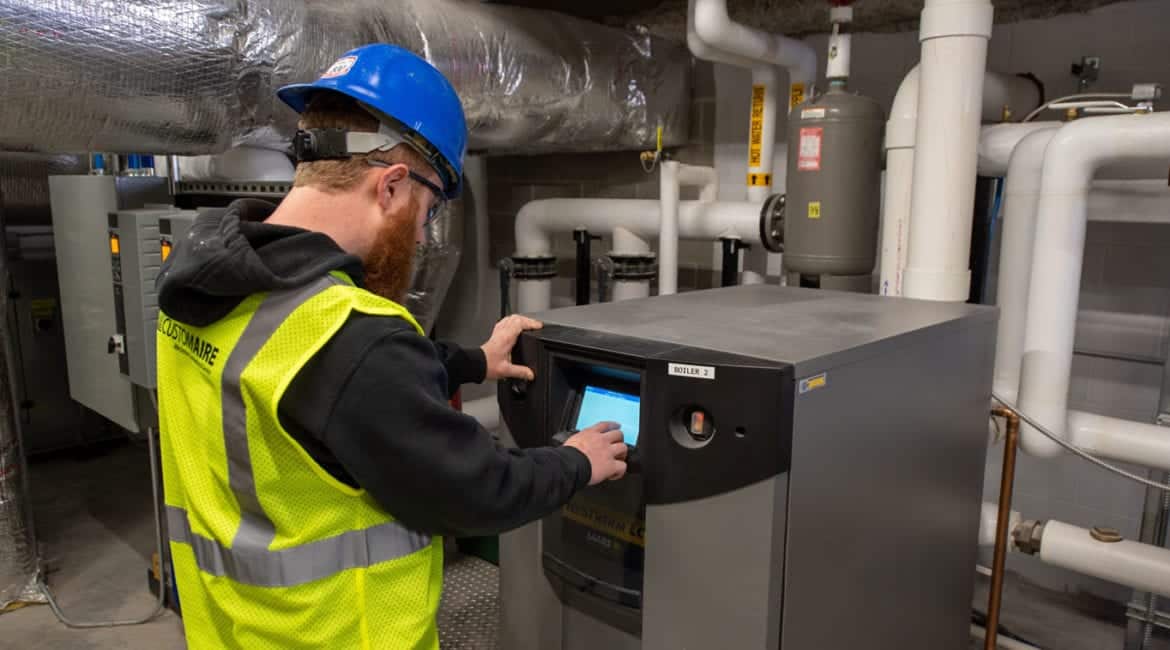Commercial and residential HVAC systems each have a common purpose: to maintain comfortable temperatures and healthy air quality for people indoors throughout the year. However, a heating and cooling system for a business, school, hospital, or other commercial space differs significantly from the equipment in your home.
As a commercial HVAC company, Custom Aire specializes in installing and maintaining heating, cooling, ventilation, and air purification products for businesses in all major industries. Because these buildings have different and more complex HVAC needs than residential homes, it requires our commercial HVAC technicians to use a specific skillset to complete the job according to industry requirements.
Continue reading to learn four ways commercial HVAC systems differ from residential equipment.
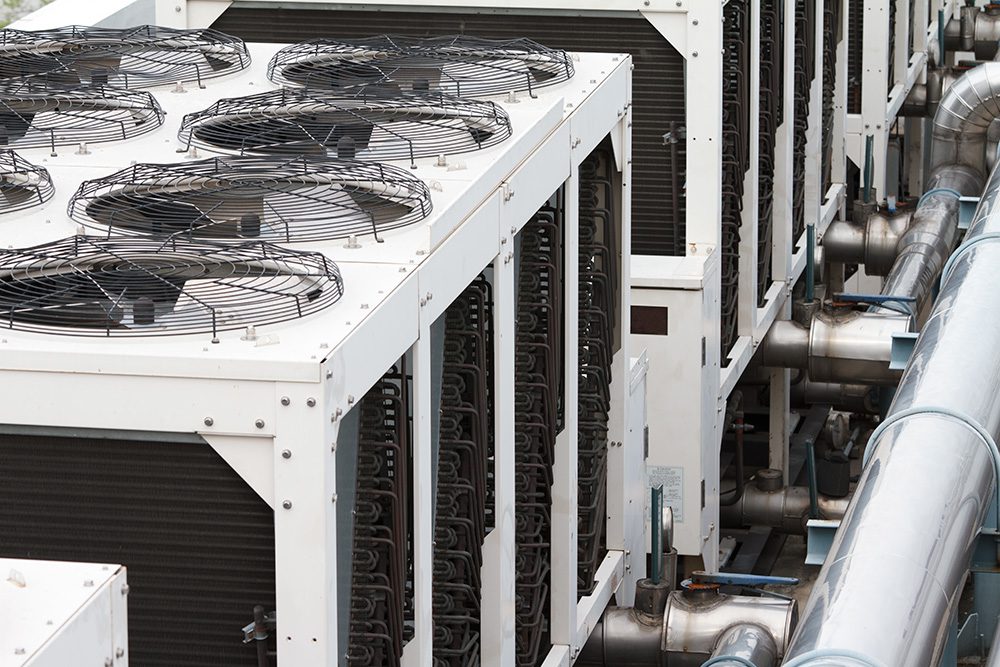
Size
To optimize comfort and energy efficiency indoors, every HVAC system needs to be properly calibrated according to the size of the space. Because most commercial buildings are much larger than residential homes, the size of their HVAC equipment also needs to be larger to successfully heat, cool, and ventilate every area in the building while maintaining industry standards.
Location
Another way commercial and residential HVAC systems differ is the location of the equipment. Most residential HVAC units are split between the inside and outside of the home, depending on the system. However, commercial heating and cooling units are often packaged together in a single cabinet on the roof of the building or in a designated mechanical room. This helps save space, reduce noise, and make the equipment easily accessible for maintenance or repairs in commercial facilities.
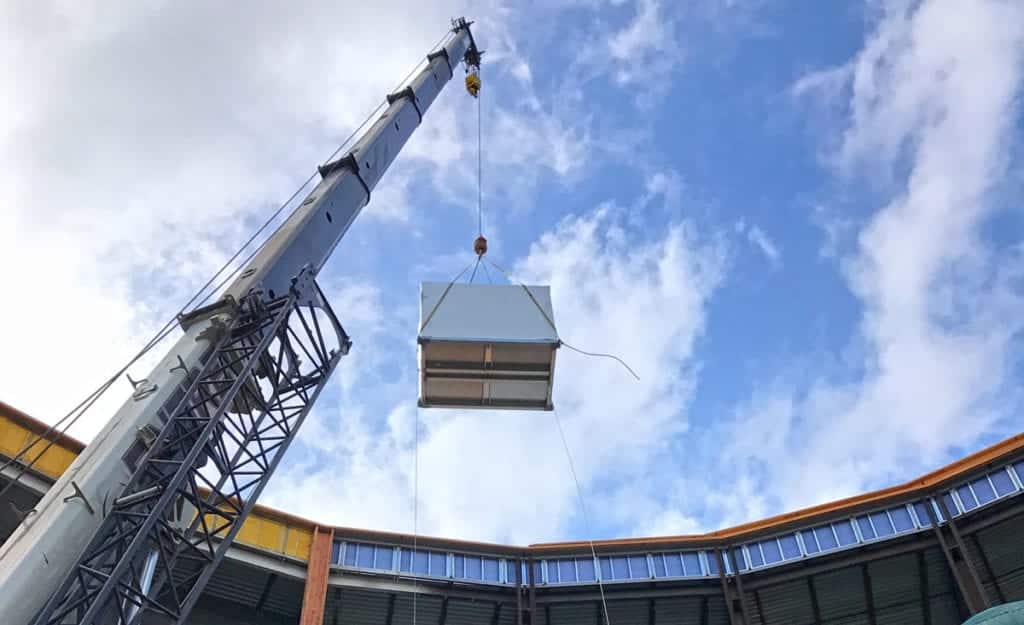
Complexity
In addition to being larger, commercial HVAC systems are much more complex than residential equipment. While residential HVAC systems usually have standalone units, industrial HVAC equipment is modular. This means pieces of the system, such as ductwork, can be added or removed to maintain the proper heating or cooling load inside the building, particularly after a remodel or expansion. This way, building owners can retrofit parts of their system as needed over time, to save money without sacrificing comfort or indoor air quality.
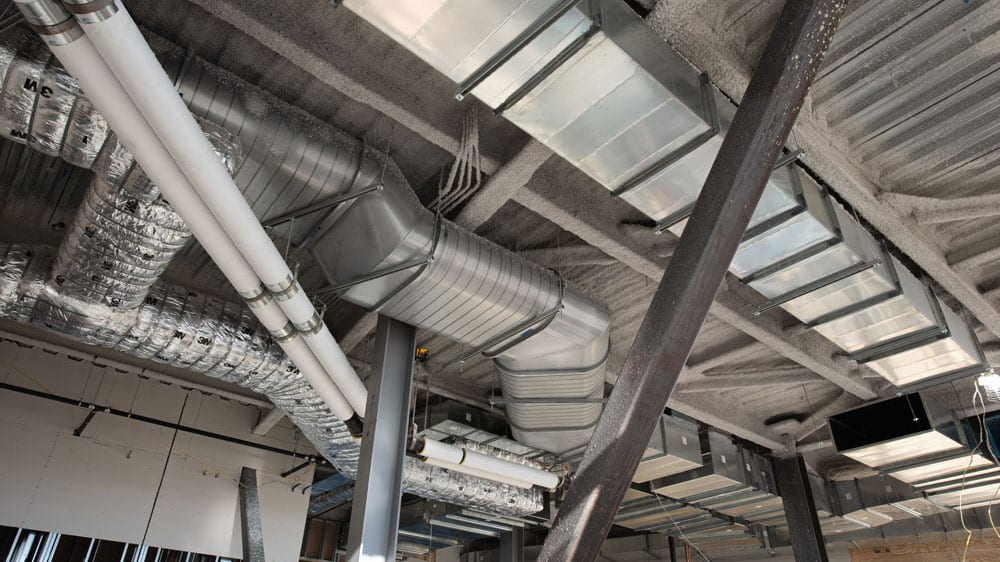
Maintenance
HVAC systems of every type require annual maintenance by a professional service technician to improve efficiency and prevent unexpected breakdowns. This is especially important for commercial HVAC systems, as industrial equipment has different functional and mechanical needs that require specialized knowledge. At Custom Aire, our service technicians follow a 37-point inspection process to ensure all aspects of a company’s HVAC system are working properly. Because no two buildings are the same, we also offer a variety of Energy Savings Maintenance Agreements for businesses to ensure their HVAC systems stay in top shape.
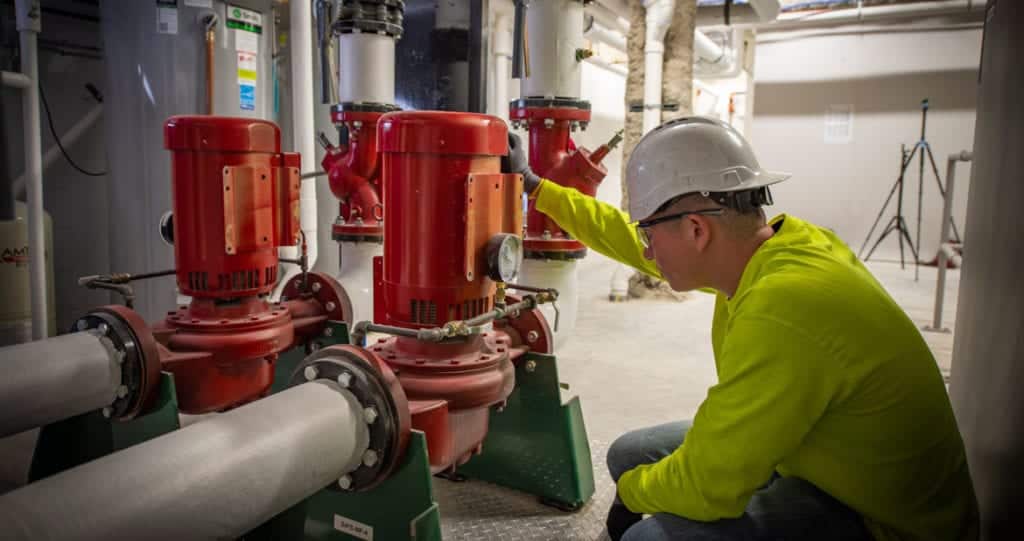
Whether your building is old, new, or still under construction, Custom Aire installs and maintains all types of commercial HVAC equipment to ensure your company stays comfortable and healthy. If you are searching for residential HVAC solutions for your home, we recommend reaching out to our sister company, Bears Home Solutions.
Contact us today to learn more about our heating and cooling services for businesses in all industries!

